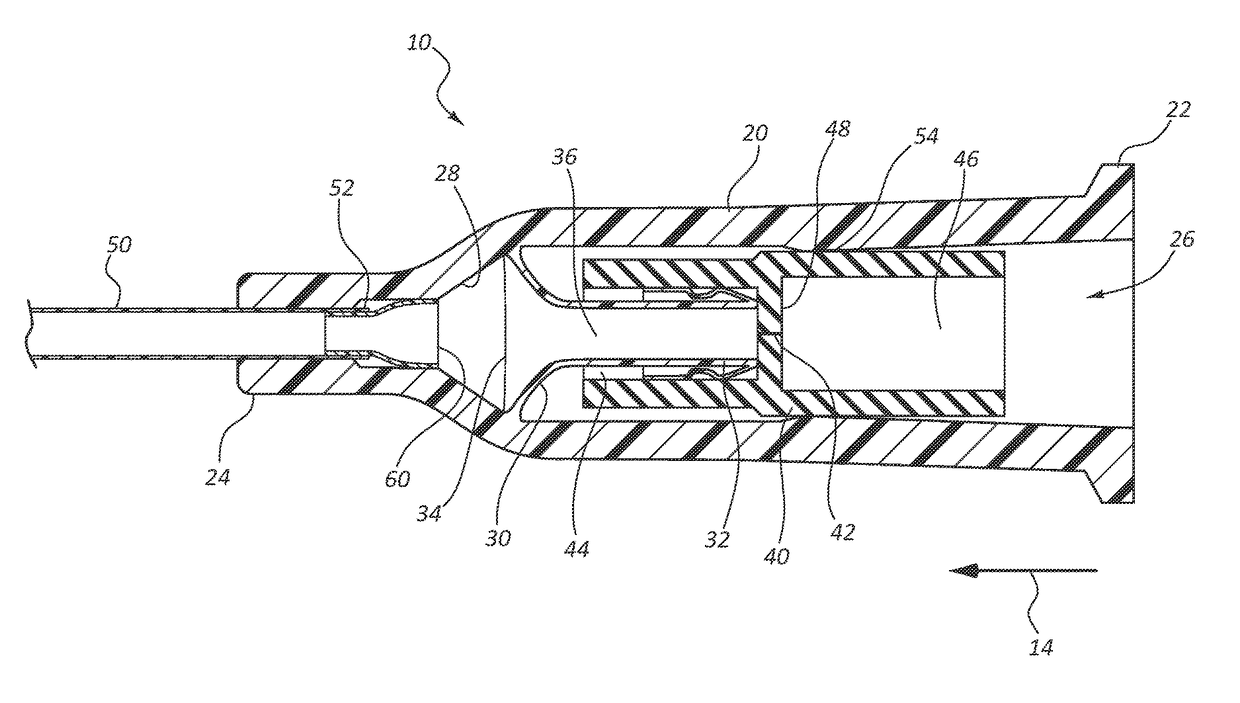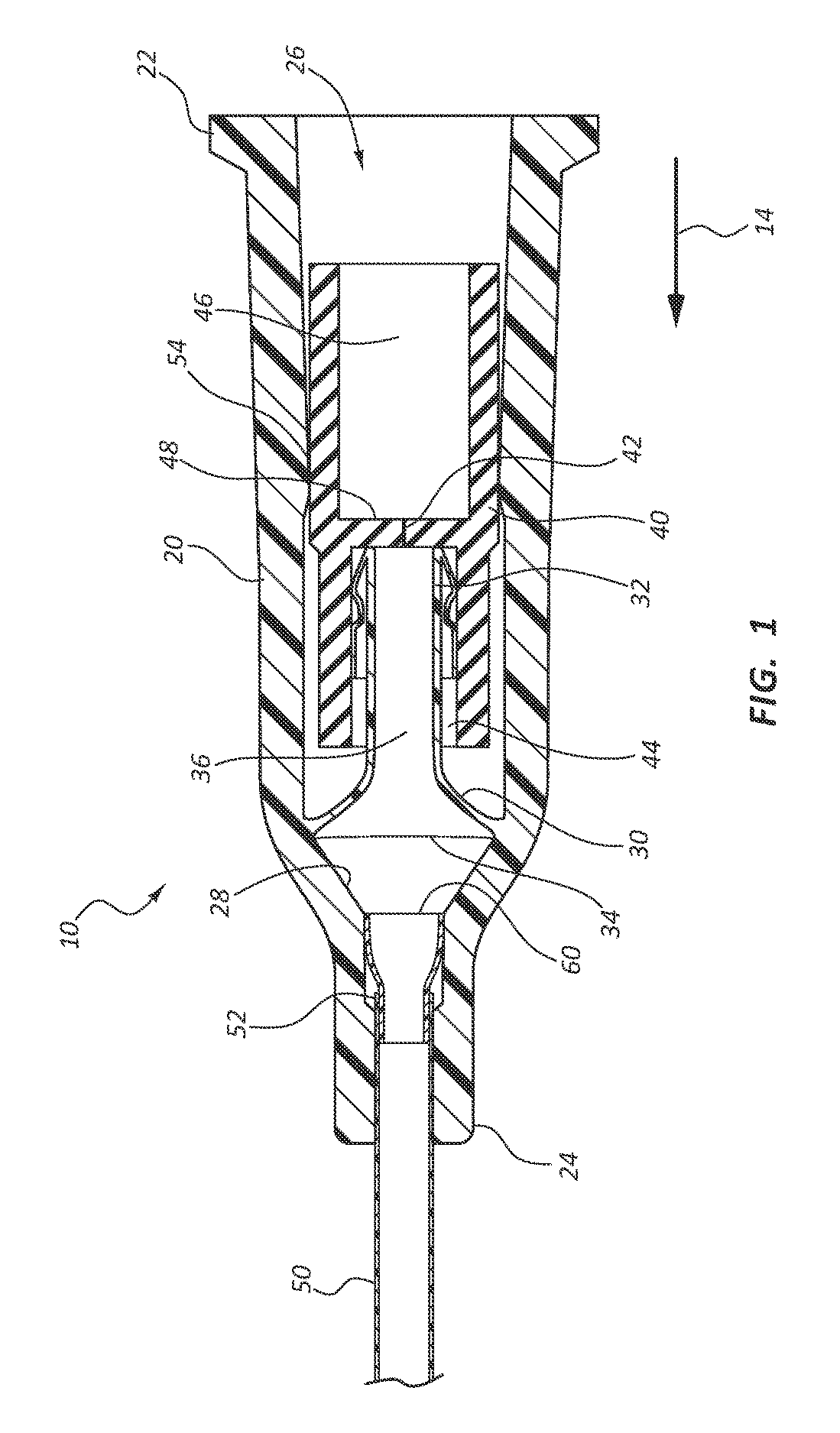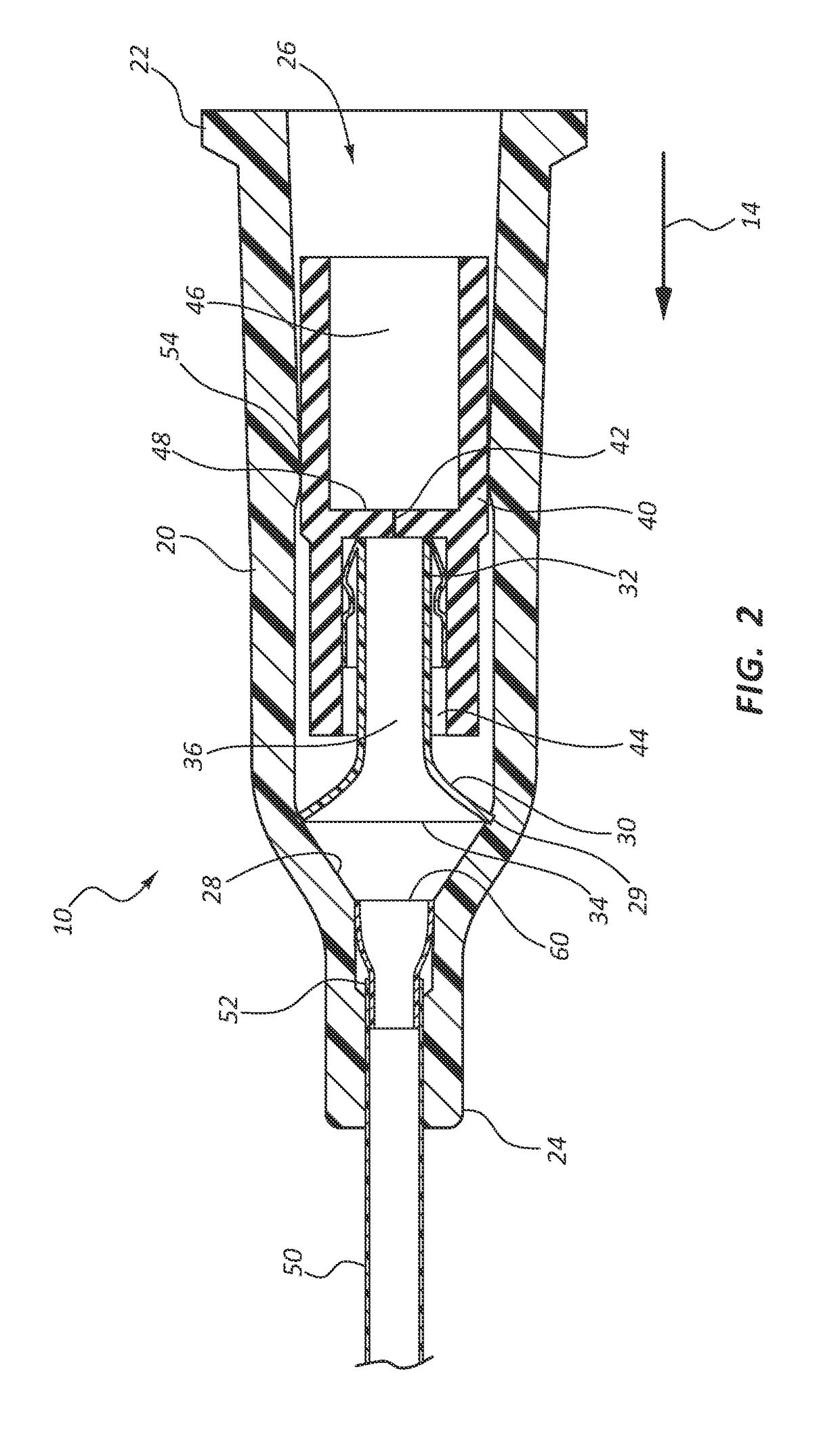Blood control IV catheter with stationary septum activator
a technology of iv catheter and septum activator, which is applied in the direction of catheters, guide needles, other medical devices, etc., can solve the problems of failure to flush the device regularly, disseminated bsi (blood stream infection), and the inability to control the spread of infection in the modern medical treatment, so as to reduce the risk of pathogenic infection in patients, the effect of reducing or eliminating the colonization and/or growth of pathogenic bacteria
- Summary
- Abstract
- Description
- Claims
- Application Information
AI Technical Summary
Benefits of technology
Problems solved by technology
Method used
Image
Examples
Embodiment Construction
[0026]The presently preferred embodiment of the present invention will be best understood by reference to the drawings, wherein like reference numbers indicate identical or functionally similar elements. It will be readily understood that the components of the present invention, as generally described and illustrated in the figures herein, could be arranged and designed in a wide variety of different configurations. Thus, the following more detailed description, as represented in the figures, is not intended to limit the scope of the invention as claimed, but is merely representative of presently preferred embodiments of the invention.
[0027]The term “proximal” is used to denote a portion of a device which, during normal use, is nearest the user and furthest from the patient. The term “distal” is used to denote a portion of a device which, during normal use, is farthest away from the user wielding the device and closest to the patient. The term “activation” of valve mechanism or sept...
PUM
 Login to View More
Login to View More Abstract
Description
Claims
Application Information
 Login to View More
Login to View More - R&D
- Intellectual Property
- Life Sciences
- Materials
- Tech Scout
- Unparalleled Data Quality
- Higher Quality Content
- 60% Fewer Hallucinations
Browse by: Latest US Patents, China's latest patents, Technical Efficacy Thesaurus, Application Domain, Technology Topic, Popular Technical Reports.
© 2025 PatSnap. All rights reserved.Legal|Privacy policy|Modern Slavery Act Transparency Statement|Sitemap|About US| Contact US: help@patsnap.com



